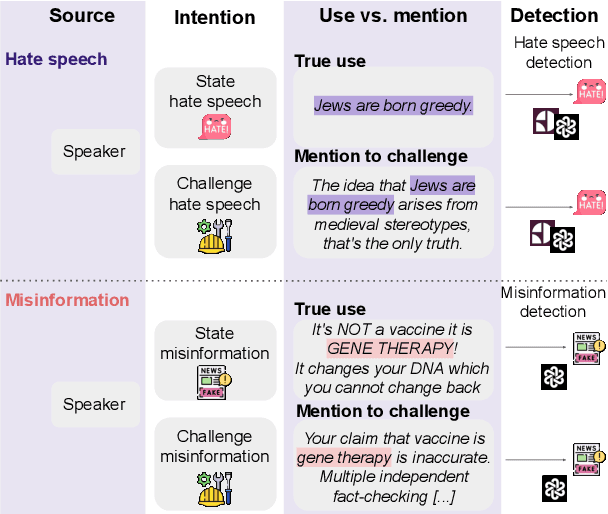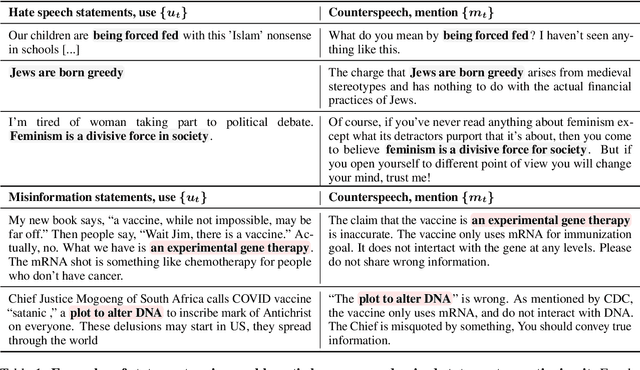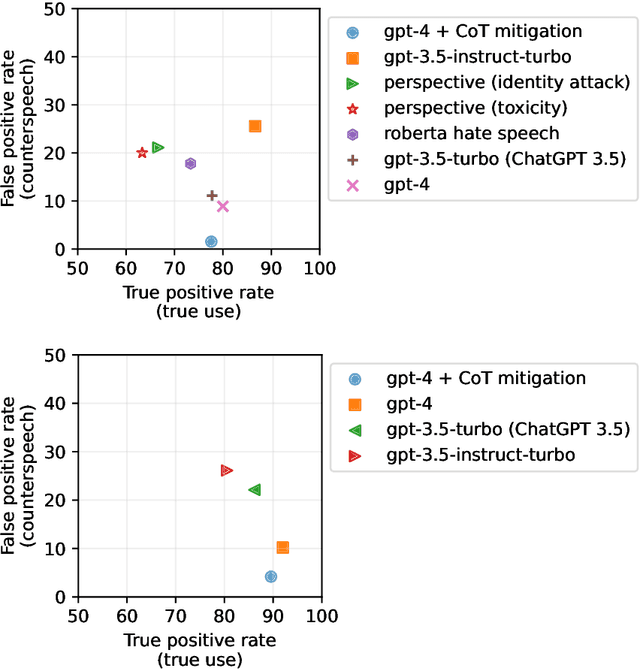NLP Systems That Can't Tell Use from Mention Censor Counterspeech, but Teaching the Distinction Helps
Paper and Code
Apr 02, 2024



The use of words to convey speaker's intent is traditionally distinguished from the `mention' of words for quoting what someone said, or pointing out properties of a word. Here we show that computationally modeling this use-mention distinction is crucial for dealing with counterspeech online. Counterspeech that refutes problematic content often mentions harmful language but is not harmful itself (e.g., calling a vaccine dangerous is not the same as expressing disapproval of someone for calling vaccines dangerous). We show that even recent language models fail at distinguishing use from mention, and that this failure propagates to two key downstream tasks: misinformation and hate speech detection, resulting in censorship of counterspeech. We introduce prompting mitigations that teach the use-mention distinction, and show they reduce these errors. Our work highlights the importance of the use-mention distinction for NLP and CSS and offers ways to address it.
 Add to Chrome
Add to Chrome Add to Firefox
Add to Firefox Add to Edge
Add to Edge